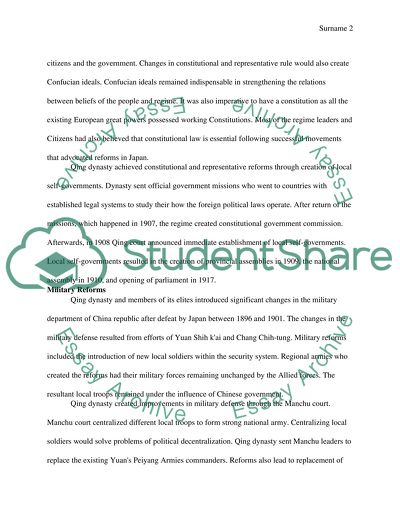Chinese history: restoration through reform Essay. Retrieved from https://studentshare.org/history/1659093-chinese-history-restoration-through-reform
Chinese History: Restoration through Reform Essay. https://studentshare.org/history/1659093-chinese-history-restoration-through-reform.


